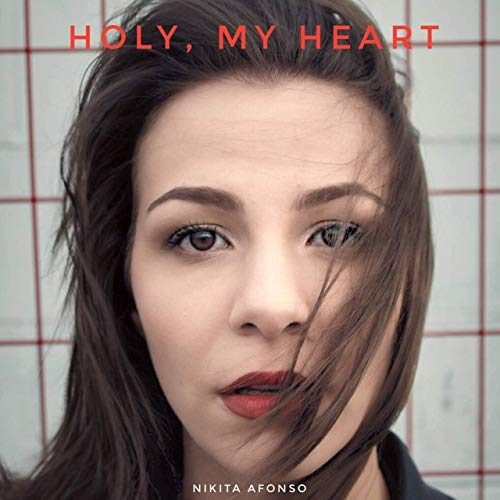Break-ups tend to suck, don’t they?
Of course, they vary in severity and fault, but there’s one particular kind that I think Nikita Afonso is addressing in her new song, “Holy, My Heart:” the kind that takes you by surprise.
To start of, the title itself connotes a certain shock. She sings “holy, my heart,” during the chorus and repeats the phrase. The important part to note here is the noticeable lack of a word in between “holy” and “my” (yes, I’m talking about a curse-word). We, as emotional human beings, tend to say things like “holy crap,” or more vulgar forms of that concept, when something we don’t expect happens. As Afonso explains in her lyrics, both the relationship itself, and the breakup that followed, left her bewildered.
The second verse is as such:
Wasn’t lookin’ for a love.
Pushed your way in,
pulled me tight ‘till I was in,
was some game for you to win.
In the end you gave me up.
You needed more.
Made me something that you had.
Burnin’ bridges what you do,
nothing left to hold on to,
only one to blame is you,
all you feel inside is sad.
These words are testament to how she feels, for she spends no time sugar-coating her thoughts with politeness or metaphor: she just calls him out. With this in mind, I want to mention a specific line, one that is repeated during the bridge a few times:
All I ever did was try.
Thus, even though she originally didn’t want a relationship, and even though she is pissed (rightfully so) that the person she was with tossed her away like trash, she nonetheless took the higher ground. Her saying “all I ever did was try” implies that her significant other didn’t, and since she did, we know which one of them truly cared.
The last thing I want to bring up is the music itself. During the two verses, the primary instrument that accompanies Afonso’s voice is the acoustic guitar. Distinctly during the first verse, the guitar is solely playing broken chords in a plucking fashion. The same style is present during the second verse, but there are some scales and single notes being plucked in the background: nothing major. Contrarily, during the bridge and choruses, the full band comes in with the piano and multiple guitars primarily strumming full chords.
So what?
The emphasis here is not on the instrumental lack of force during the verses, but rather on its significant enhancement during the chorus and bridges. Perhaps this is because our singer wants to showcase the jumble of emotions (negative ones, I’d assume) going through her head and heart. The lack of instrumental presence during the verses is due to the nature of her lyrics. In these words lie description ‒ well-thought-out, seemingly ‒ and in order to get her points across, emotions are slightly suppressed.
The chorus and bridge are a very different story. Here, she is only trying to get one message across in the chorus ‒ “holy, my heart” ‒ and one in the bridge ‒ “all I ever did was try” ‒ and it doesn’t take much thinking to repeat the same phrase. To compare, a gamer who just died to a really lucky shot by a sniper might start exclaiming “crap crap crap crap crap…” (for lack of a better word): same concept with “holy, my heart.”
It is clear that Afonso is extremely emotionally charged, and the lyrics and music work in unison to illustrate this exceptionally well.







